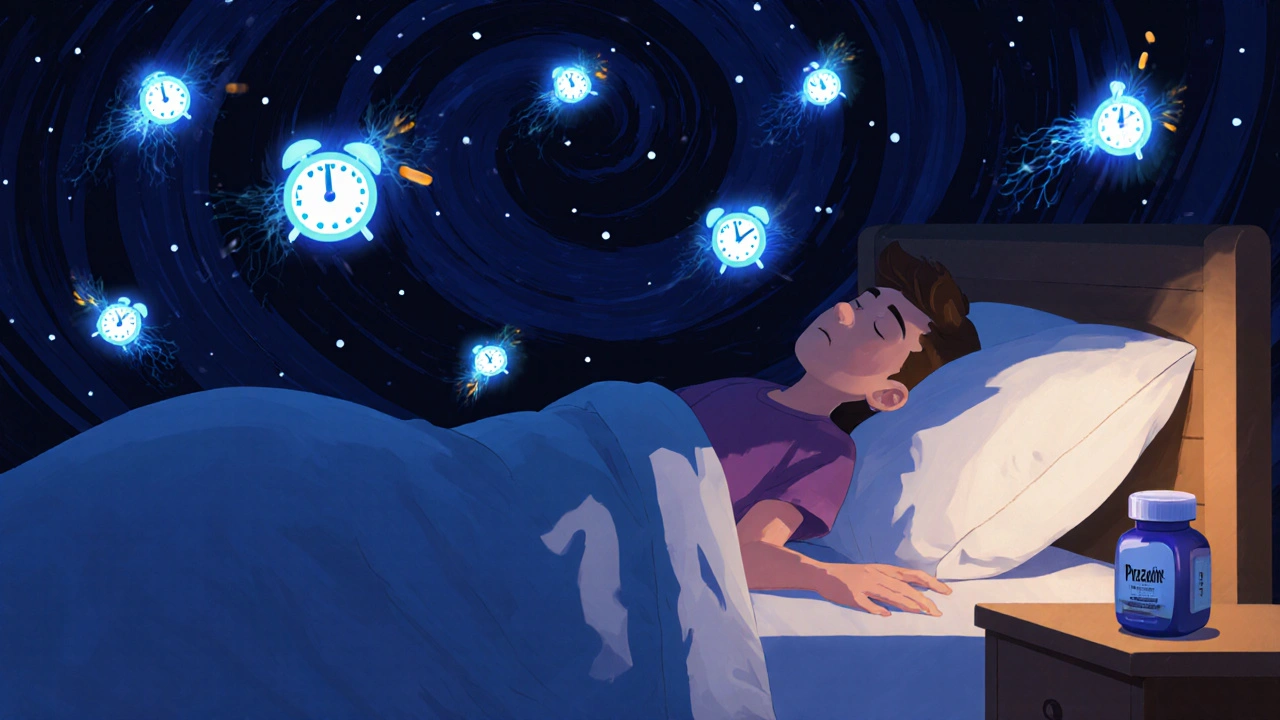SSRI Sleep Side Effects: Why You Can't Sleep and What to Do
When you start taking an SSRI, a class of antidepressants that increase serotonin levels in the brain. Also known as selective serotonin reuptake inhibitors, they're among the most prescribed meds for depression and anxiety. But for a lot of people, the trade-off isn't worth it: sleep goes sideways. You might lie awake for hours, wake up at 3 a.m. and can't go back to sleep, or feel like you've been dragged behind a truck by noon. This isn't rare—it's common. Studies show up to 60% of people on SSRIs report some kind of sleep disruption, whether it's insomnia, vivid dreams, or daytime drowsiness.
The problem isn't just "not sleeping." It's that your brain's sleep-wake rhythm gets tangled. SSRIs boost serotonin, which helps mood—but serotonin also turns into melatonin, the hormone that tells your body it's time to rest. Too much serotonin too early? Your body gets confused. Some people fall asleep fine but wake up too early. Others can't drift off at all. And then there's the flip side: extreme tiredness during the day, even if you "slept." That's because SSRIs can mess with REM sleep, the deep, restorative part of the cycle. You might clock eight hours, but your brain never fully resets. This isn't just annoying—it makes depression harder to treat. Poor sleep fuels low mood, and low mood makes sleep worse. It's a loop.
Not all SSRIs hit the same way. Sertraline, a common SSRI often prescribed for anxiety and depression is notorious for causing insomnia, especially early on. Fluoxetine, another widely used SSRI, has a long half-life, so its effects linger, making sleep issues last longer. But Citalopram, a different SSRI with a gentler profile, tends to be less disruptive for sleep. It’s not about the drug being "good" or "bad"—it’s about your body’s chemistry and how it reacts. Some people sleep great on SSRIs. Others can’t tolerate them at all. That’s why switching or adjusting timing matters. Taking your pill in the morning instead of at night helps a lot of people. So does adding a low-dose sedating med like trazodone—something your doctor can guide you on.
You’re not alone if you’re stuck in this cycle. Thousands of people stop SSRIs because of sleep problems—not because the drug isn’t working for their mood, but because they’re too tired to function. But quitting cold turkey isn’t the answer either. The fix isn’t always another pill. Sometimes it’s timing, sometimes it’s dose tweaks, sometimes it’s adding a non-habit-forming sleep aid. The posts below dig into real cases, comparisons, and practical steps people have taken to get their sleep back without giving up their antidepressant. You’ll find what works, what doesn’t, and how to talk to your doctor about it without sounding like you’re just complaining.

